THE SISTERS BROTHERS (2018)
Amid the Californian Gold Rush of the 1850s, two hired killers hunt a man with a secret.
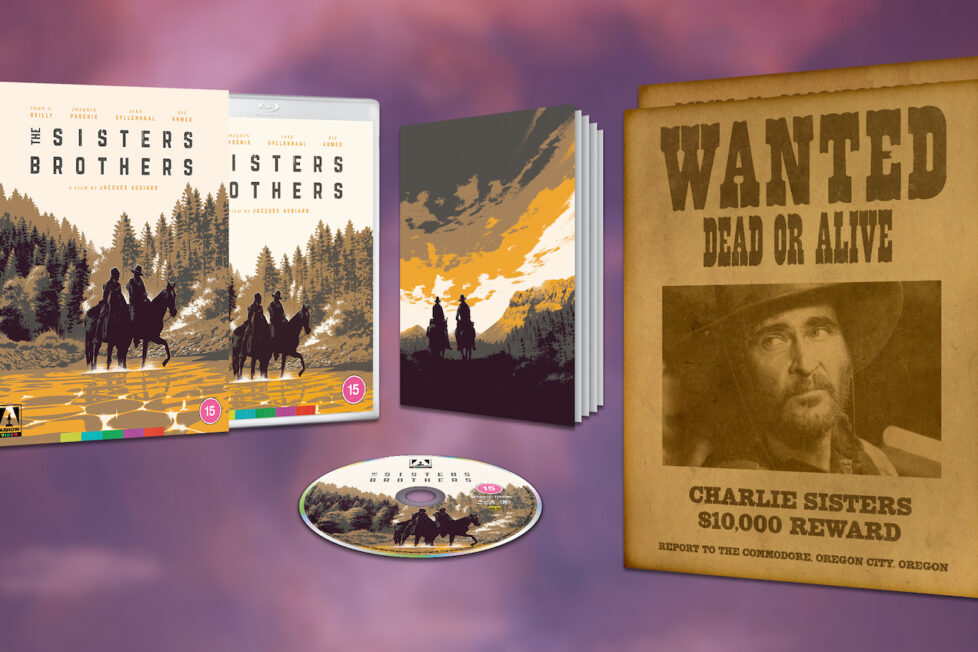
Amid the Californian Gold Rush of the 1850s, two hired killers hunt a man with a secret.


Patrick deWitt’s 2011 novel The Sisters Brothers, shortlisted for the Man Booker Prize and winner of several others, is a dark, witty, sweet, sad tale of the Old West narrated in the first person by one of the two titular characters, Eli. A significant issue with Jacques Audiard’s 2018 film is that Eli (although magnificently played by John C. Reilly in one of his best performances) is just one of four central roles, and this robs the film of the unity that a single perspective gave the book.
The result of this and other screenwriting decisions is a movie that, while similar to deWitt’s work in mood, is more disjointed and less satisfying. While undeniably entertaining, superbly made, and original (not quite a comedy, not quite a family drama, certainly not a conventional western, but neither a conventionally cynical revisionist one either), there’s something a little insubstantial and episodic about it. The lack of access to Eli’s inner world makes the brothers’ relationship that much harder to comprehend (what little voiceover the film has is actually given to another character), and although Anthony Lane in The New Yorker felt that Audiard’s film “glitters with half-revealed secrets”, perhaps they could have been revealed just a little more.
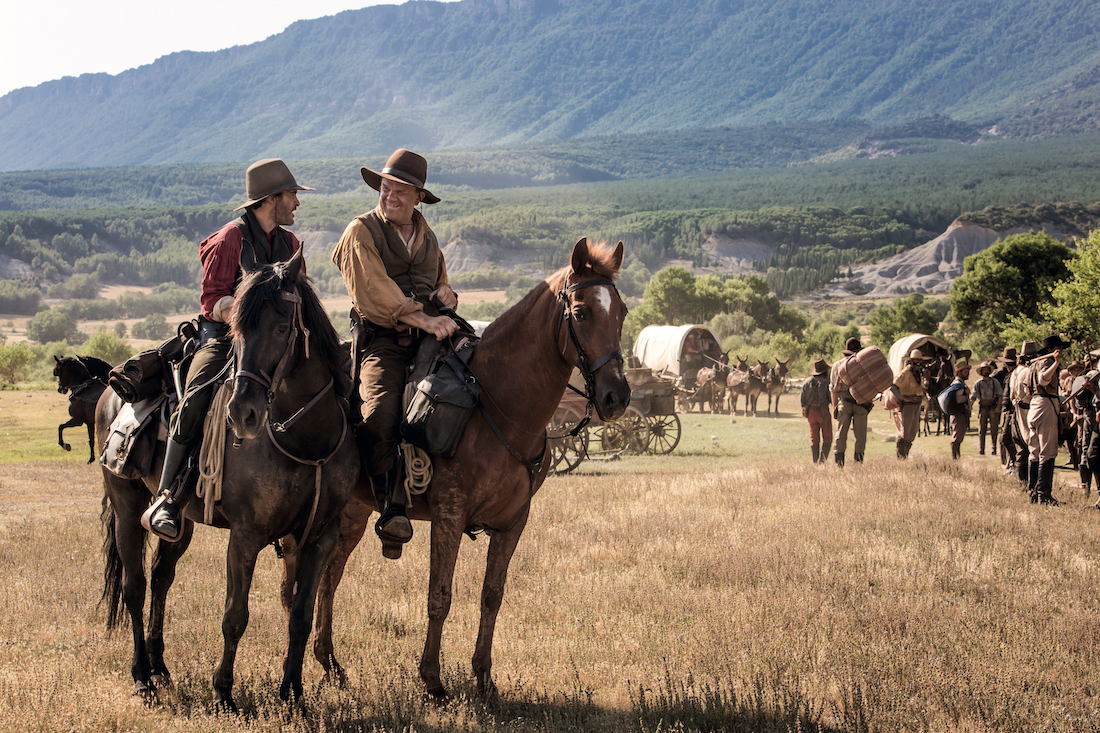
The Sisters Brothers was Audiard’s first English-language film and, on the surface, it seemed to mark a sharp departure in tone from his fine earlier work like A Prophet / Un Prophète (2009) and The Beat That My Heart Skipped / De Battre Mon Cœur s’est Arrêté (2005), although it’s possible to see resemblances to them in this multifaceted movie: to the brutal violence of Prophet and the mixture of violence with sentiment in Beat, for example. Co-writer Thomas Bidegain had also worked with Audiard on three films, including Prophet, and indeed had himself directed Reilly recently in Les Cowboys (2015), not itself a western but a movie with western influences.
The film starts in Oregon in 1851 before moving to a California experiencing the height of the Gold Rush. This is colourfully illustrated in the film’s brief portrayal of San Francisco as a get-rich-quick, anything-goes city which had sprung into existence from almost nothing just a few years prior. Other locations are more generic although Jacksonville, Oregon, does exist and was another city built on gold; Mayfield, California plays a significant role in the film but may or may not be the same Mayfield that became part of Palo Alto. In reality, the movie was largely shot in Romania and Spain, though that doesn’t stop the mountain scenery being as jaw-droppingly gorgeous as anything in the American West.
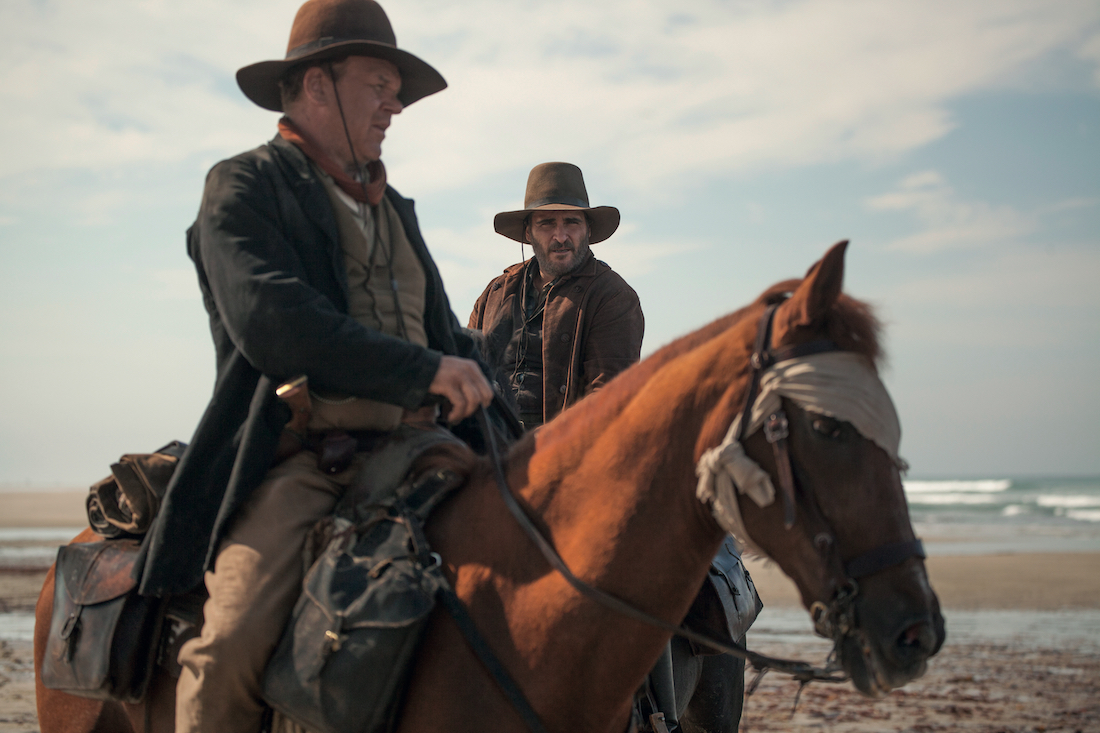
Eli Sisters and his brother Charlie (Joaquin Phoenix) are enforcers and assassins working for a somewhat mysterious and seemingly ruthless commercial magnate known only as The Commodore (Rutger Hauer in one of his last roles). After a brief introductory sequence depicting a different job, they receive their new assignment from The Commodore: to hunt down a man called Hermann Kermit Warm (Riz Ahmed), after whom The Commodore has already sent a less violent investigator, Morris (Jake Gyllenhaal).
Exactly what they’re to do with Warm isn’t made clear at first; Charlie has managed to get himself appointed “lead man” of the duo, to his brother’s irritation, and seems to be withholding details of the latest mission purely to annoy him. It will emerge, however, that despite Charlie’s initial claim Warm has stolen something from The Commodore, the opposite is actually true.
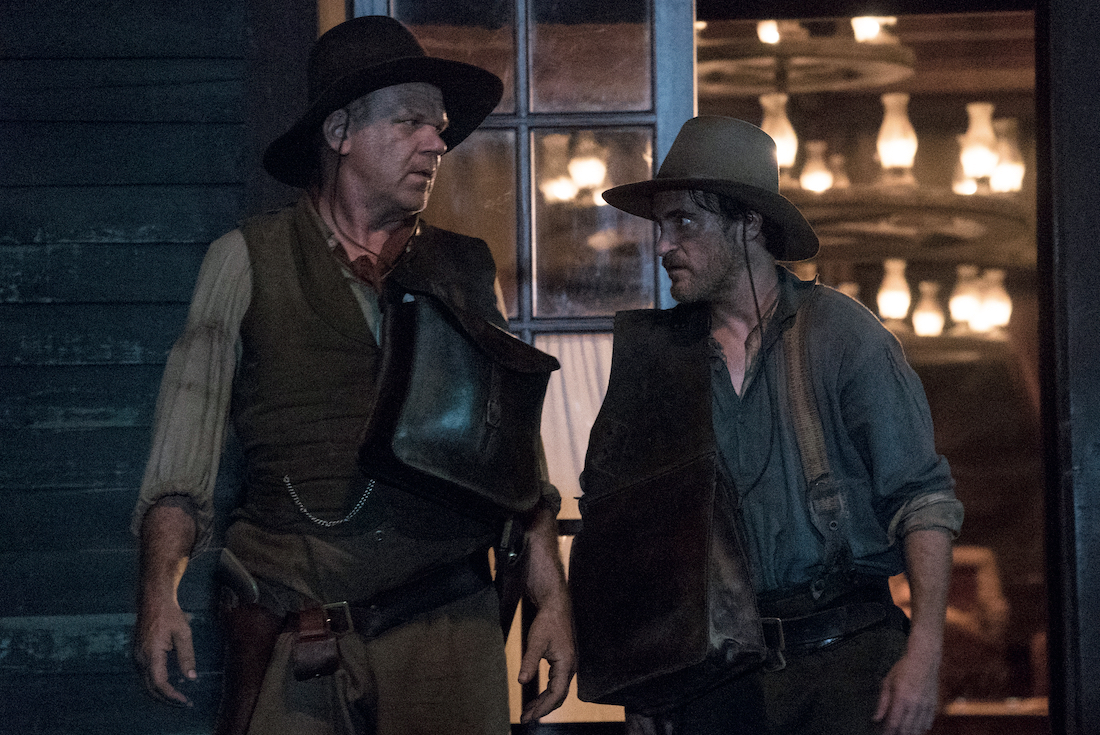
Warm is a chemist who’s invented a “divining substance”, a liquid which causes gold to shine brightly; meaning, when added to river water, it will allow a prospector to locate the precious metal immediately, rather than spending weeks or months (as they did during the Gold Rush) trying to find it amongst gravel. The Commodore wants this secret for himself and he wants the Sisters brothers to torture Warm for the formula before killing him.
But what neither The Commodore nor the brothers know is that Morris, soon after locating Warm, has quickly made friends with him; he seems won over not so much by the promise of Warm’s “divining substance” as by his dreams of founding a utopian society in Texas, and there’s almost something of a love affair about their relationship, although no indication it’ anything other than platonic.
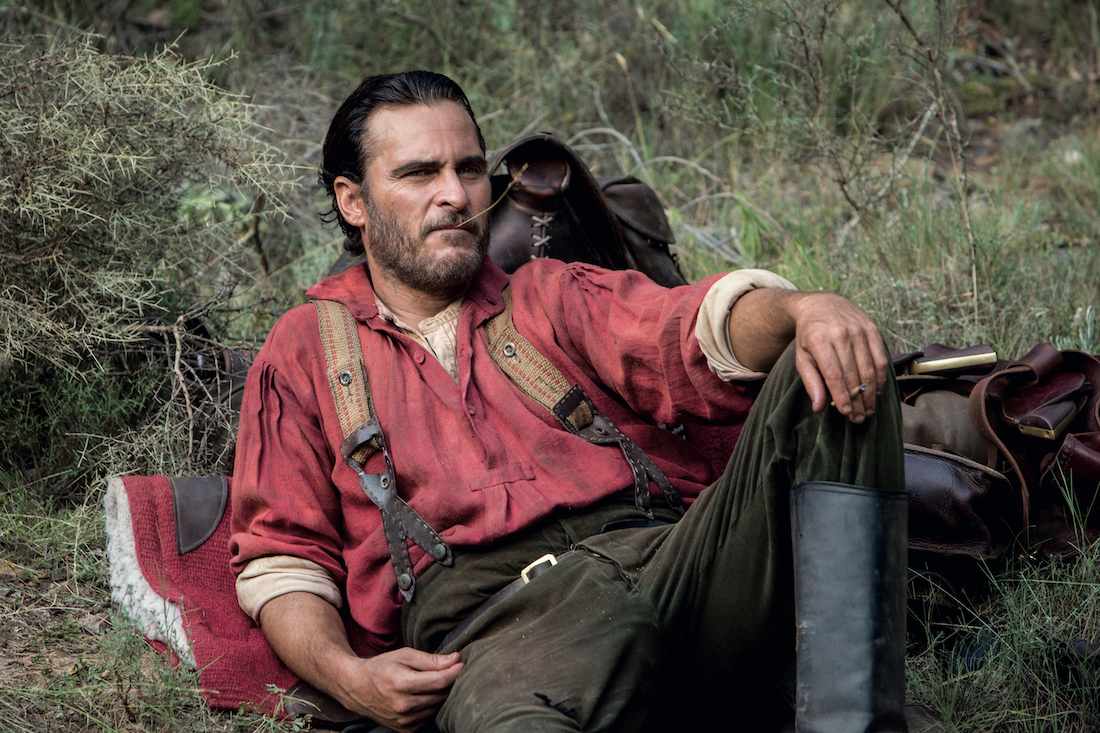
Audiard’s film, for much of its duration, switches back and forth without pause between the brothers in one narrative strand, and Warm and Morris in the other; this, and the frequent alternation between scenes of the brothers riding cross-country toward their quarry and other more static, conversation-dominated scenes gives the film an unusually strong sense of rhythm. Eventually the brothers reach the Pacific (“You and I have never gone so far in a straight line,” says Charlie to Eli) and eventually they also reach Warm and Morris, setting things up for a concluding act that holds several surprises.
The cast is uniformly superb. All four of the leads are at their best, the soft-spoken Ahmed and Gyllenhaal just as much as the more flamboyant Reilly and Phoenix, and though the supporting roles are much lesser in importance, many of them are memorable—perhaps most notably Rebecca Root, a trans actress who appears as the eponymous leader of the town of Mayfield. She told interviewers that she played Mayfield as a cis woman, but Audiard toyed with the idea of presenting the character as a trans woman, and that ambiguity is certainly detectable.
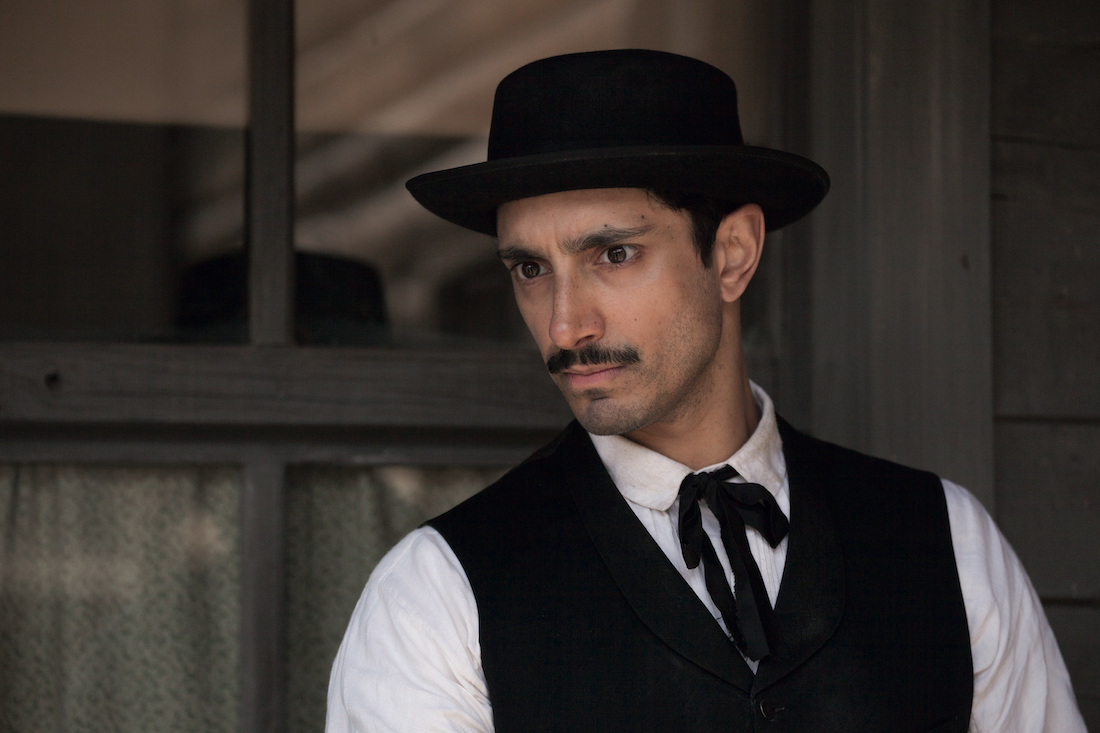
Reilly shines most of all. He’s perfectly cast as the older and seemingly gentler of the bickering brothers, excited by his encounters with modern innovations like the flush toilet and the toothbrush. Yet these childlike aspects—while real—also conceal anger and resentment. It’s all too easy to forget that both Eli and Charlie are casual, mercenary killers, and indeed when Eli tries to convince himself he’s the least violent of the pair it’s Charlie who disabuses him of the notion. Perhaps Eli, who seems more self-aware, is not?
Charlie is, in many, ways his opposite; while Eli is getting mawkish over a shawl that a woman back home has given him, Charlie is living it up in a red-lit brothel, and while Eli seems something of a hypochondriac, Charlie’s frequent sicknesses are all brought about by his monstrous hangovers. He’s the only one of the four main characters who seems a tough guy in a traditional genre sense, but is he really?
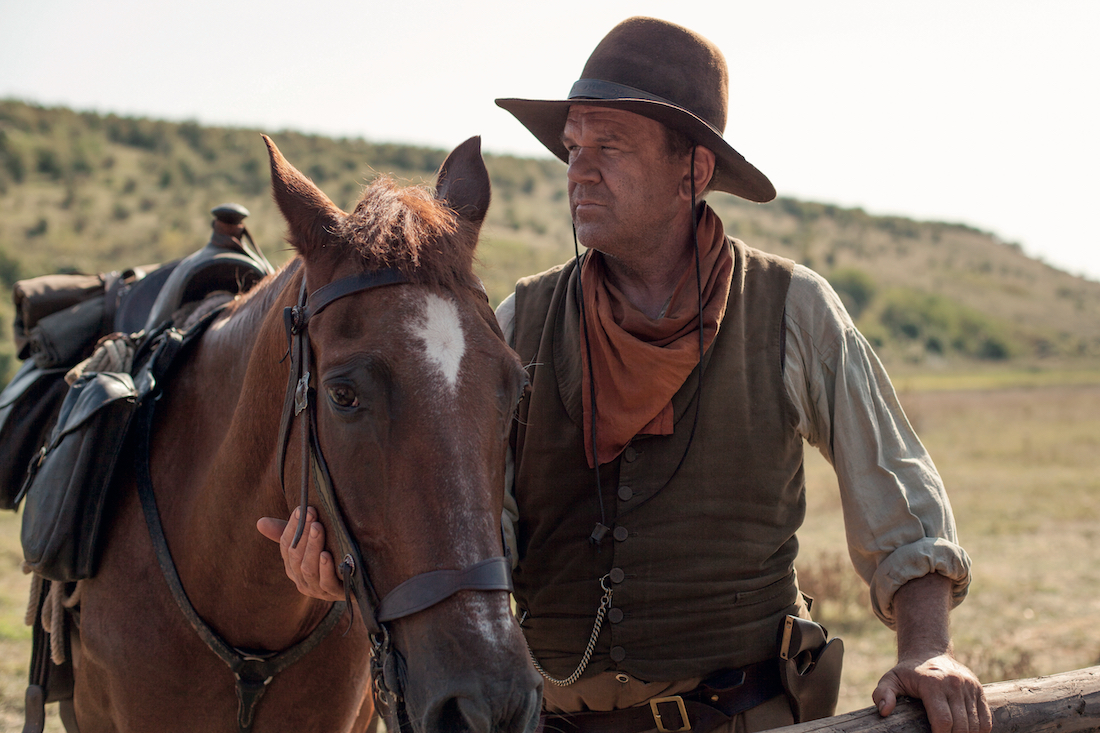
Sickness (as in the hangovers), medicine (as in Eli’s ailments), and science generally—as in the “divining substance”—are frequent themes in both the book and film, appropriately for a story set in a period so interested in them, but one of the latter’s more significant weaknesses compared to deWitt’s novel is that it makes so little of Eli’s poorly horse Tub. The animal’s worsening health is returned to again and again in the novel, seeming to bring home to Eli some realisations about both love and mortality; in Audiard’s film it’s only a minor detail. Similarly, a telling detail in the book about ships’ crews abandoning their cargo in their haste to search for gold becomes, in the movie, a momentary and unexplained shot of personal possessions left behind on a Pacific beach.
Many changes from the novel (the details of Eli’s toothbrush purchase, for example, or the location of a bear attack) are unimportant, to be fair, and some of deWitt’s evocative dialogue—convincingly 19th-century while still coming across as naturalistic—is retained. But there are many points where the alterations made by Audiard and Bidegain aren’t improvements. The sequence in the town of Mayfield, for instance, like so much in The Sisters Brothers, seems condensed to a rather random brief encounter, and the motivations of Mayfield’s men aren’t obvious. An attack on the camp of Warm and Morris isn’t only very different but again is less clear, too.
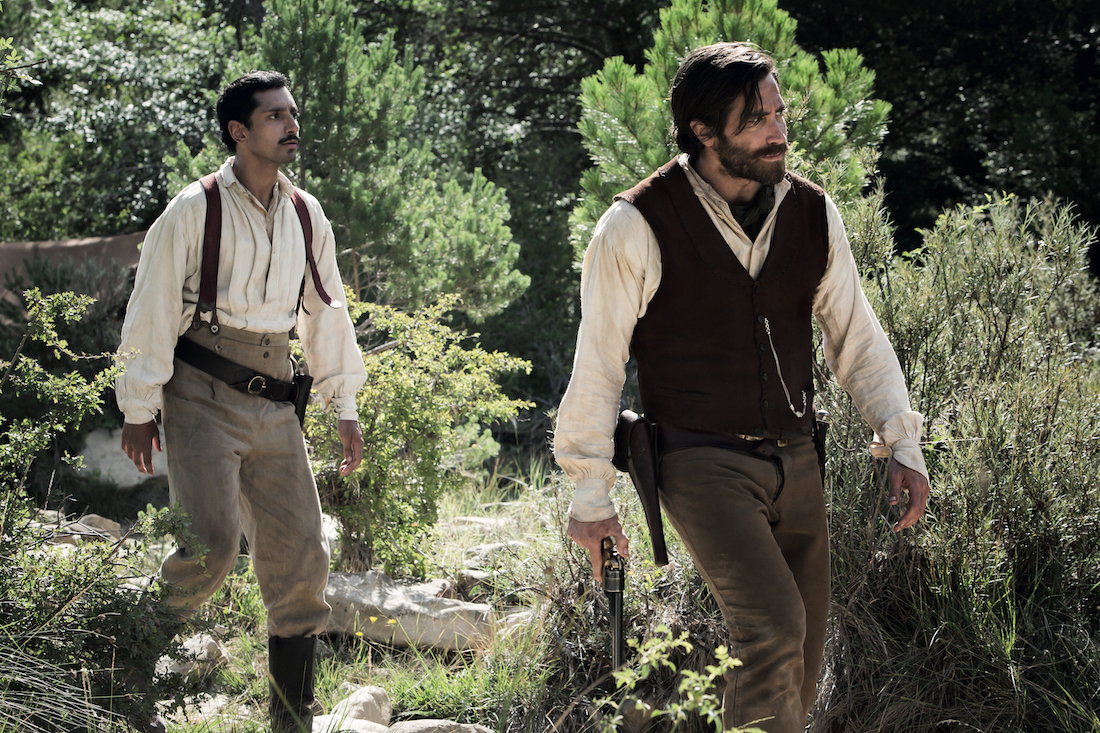
Audiard and Bidegain were presumably determined to retain these elements of deWitt’s book, but in reducing their scale and simplifying them to fit into a standard-length movie, they risk making them superficial. The problem is not that changes from the source material are necessarily bad, it’s that they just don’t work that well: for all its merits, The Sisters Brothers might have been an even better movie if it had tried to cram in less of the novel and instead allow each element more depth. The case of Eli’s “middling horse” Tub is, again, a prime illustration—since the movie never really lets us know how emotionally invested the man is in the animal, depicting its eventual death is pointless. Omitting it altogether (as Audiard and Bidegain do with a group of beavers in the novel, creatures whose busy activity in the river is implicitly compared to the gold prospectors’) might have been preferable.
Visually, The Sisters Brothers is accomplished and always atmospheric, from the opening firefight (yellow flashes against blue/black night) to the shoddy, muddy, towns of the frontier. Audiard employs a wide range of stylistic approaches (a mobile camera at many times, but old-fashioned iris shots at others), Eli’s nightmare of his father is effectively surreal, and there is a nice little possible nod to The Searchers with a doorway shot at the very end—but not too much obvious allusion to other westerns. To its credit, indeed, The Sisters Brothers never feels weighed down by genre traditions, and certainly never feels “historical” at all; the characters, the places, the opportunities and the dangers come across as live and real.
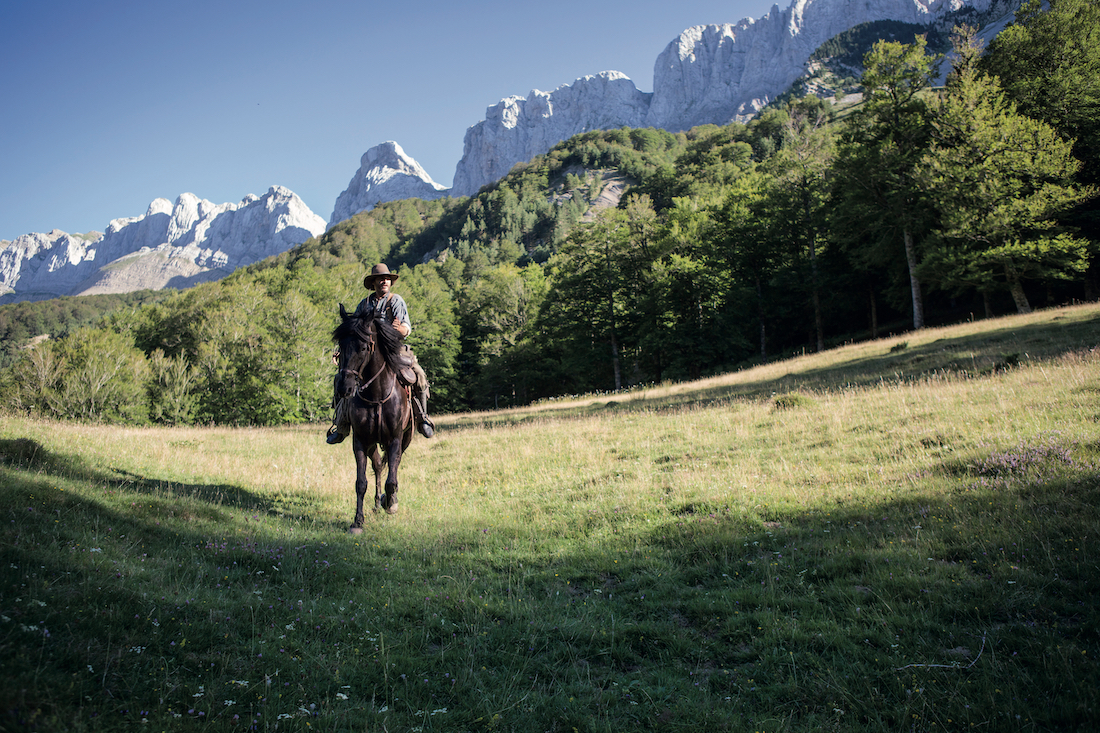
As well as this, it is of course—like most quest movies—allegorical. The journey across the American West is the journey through life, the quest here is not only a search for Warm and gold but for several other things besides: self-knowledge, family reconciliation, contentment. The Commodore may be God, or fate, or the weight of the past.
But the brothers themselves are purely human (in a film dedicated to the director’s own brother), and most of the joy of The Sisters Brothers comes simply from watching Reilly and Phoenix, as well as Ahmed and Gyllenhaal in their slightly lesser and less rounded parts. To that extent the movie really is a delight, and it is filmed with a great sense of the visual, too. What lets it down—what makes it only a fun riff on aspects of the novel, rather than the novel’s equal—is its attempt to cram in too much incident, at the expense of meaning.
FRANCE • SPAIN • ROMANIA • BELGIUM • USA | 2018 | 182 MINUTES | 2.39:1 | COLOUR | ENGLISH • RUSSIAN

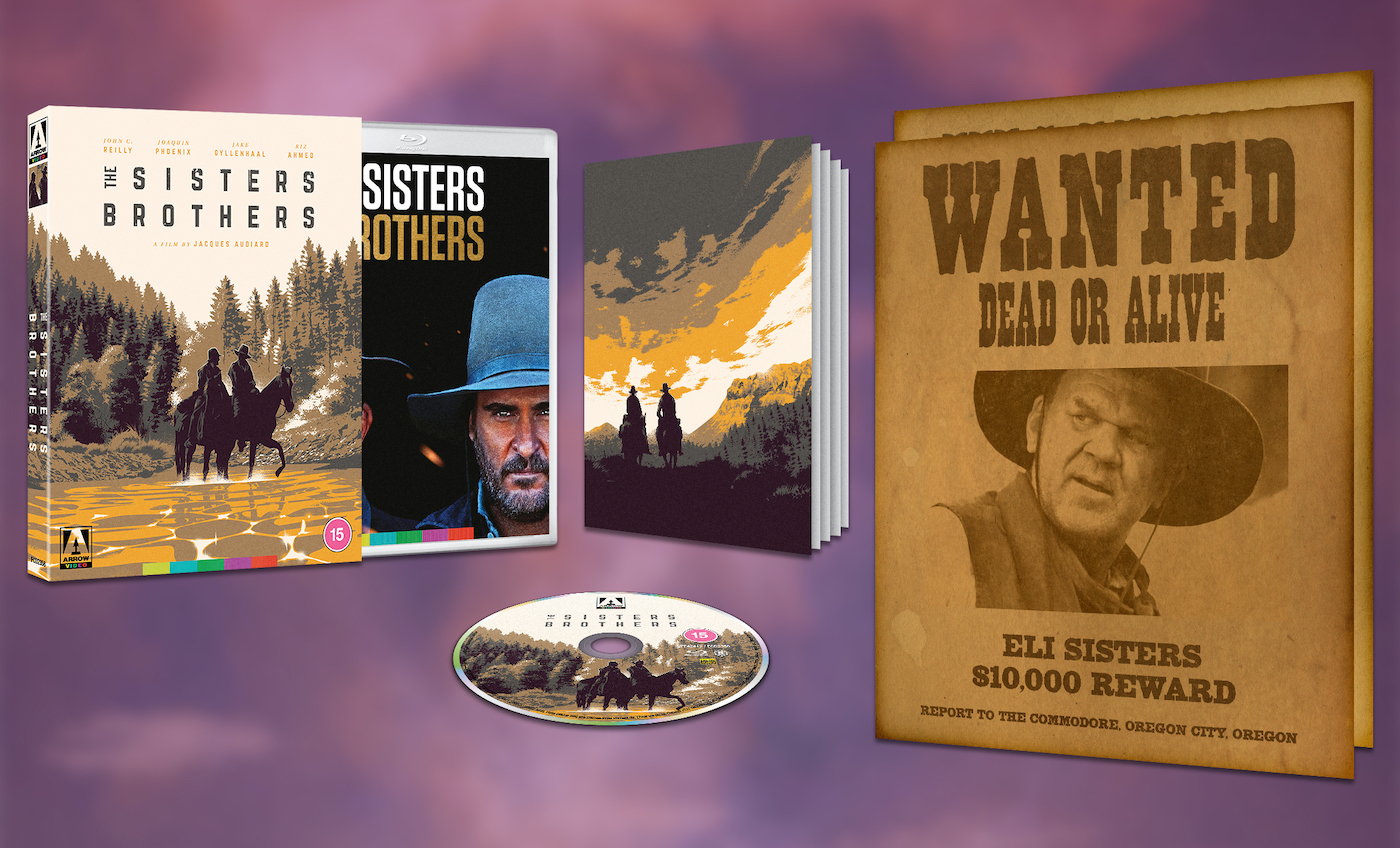

director: Jacques Audiard.
writer: Jacques Audiard & Thomas Bidegain (based on the novel by Patrick deWitt).
starring: John C. Reilly, Joaquin Phoenix, Jake Gyllenhaal & Riz Ahmed.
